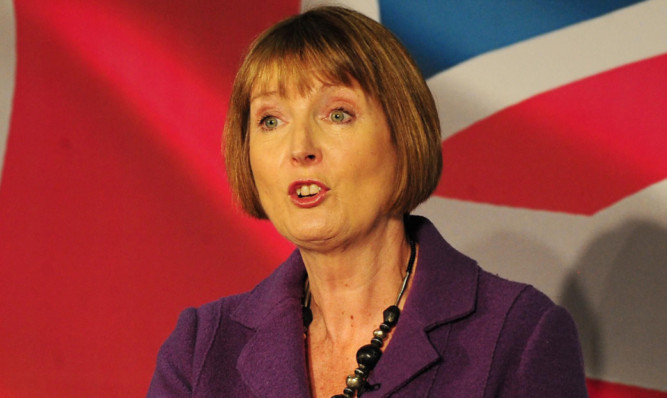
It’s been a difficult summer for Labour.
From the Falkirk fiasco that saw the party accused of being in hock to the trades unions to more recent complaints from his own MPs that Ed Miliband and his front bench aren’t shouting loud or clear enough.
Harriet Harman, the party’s deputy leader, sees things differently.
She doesn’t recognise recent troubles but claims it’s the government that is out of touch.
She said: “What’s happened this summer is we’ve seen a contrast between the government saying the economy is healing yet young people still can’t get a job, living standards are falling, people are having to run faster to stay still.
“Ed Miliband put living standards on the agenda, injected some reality into the debate pointing out that many new jobs created are part time or zero hours contracts.
“When it comes to the reality of people’s lives Labour are in touch and the government is out of touch.”
Yet Ed Miliband’s been posted missing for the past fortnight. He only hit the headlines upon his return to work last week for getting egged by a passer-by.
Again Harman disputes that version of events.
She said: “The reality is that we have been absolutely clear and focussed on the things that matter to people.
“It’s always a challenge to be in Opposition but Ed Miliband has been absolutely on track with the concerns people have. He was first to identify the squeezed middle and to talk about the lost generation of young people something exacerbated in Scotland by the cuts to college places.”
Harman is heading to Scotland this week, though not to visit the troubled Falkirk constituency home of accusations the trades unions are trying to stitch up the Labour candidate selection process. Again Harman claims all is well. She said: “It’s not the first time there’s been an argument over selection. It’s very regrettable but Ed Miliband has acted very decisively.”
Harman will be in Edinburgh in her role as shadow culture secretary. She’ll be hitting the Fringe and “hanging out” with shadow Scottish Secretary Margaret Curran. “We’ll be doing masses of work, but having fun as well.”
She’s a fan of the annual cultural extravaganza and warned its unique atmosphere could be at risk in the event of Scottish independence.
She said: “Edinburgh is the place to be at this time of year, it’s the greatest festival of its kind.
“Devolution has allowed culture in Scotland to leap forward and shine, it feels quite defensive to say the arts need independence.”
But if devolution has benefitted the arts and Harman struggles to name a hard example of where it has then perhaps taking the next step and embracing independence would make things even better.
Harman explained: “The Edinburgh Festivals go from strength to strength while keeping a strong Scottish identity, I can’t see how in any way independence would be a benefit.”
It’s an argument she applies to the world of television too, also part of her culture brief. She’ll be attending the industry talking shop television festival and listening to the keynote speech by Hollywood actor Kevin Spacey on the challenges facing TV.
She said: “One of the most important television phenomenon for people in Scotland, and the rest of the UK, is the BBC. If there was independence that would change Scotland’s relationship with the BBC and put it on the same basis as people in France or the Republic of Ireland who have to pay to receive BBC services.
“The devolution of production and work to Scotland from London has been a success story, why jeopardise it?”
Harman’s views on this matter because though the Labour party has problems and despite her refusal to acknowledge them they do exist the polls still suggest she could be back in government after 2015. That means that in the unlikely event that the SNP get their way in the referendum next September they could be negotiating the break up of the BBC with her.
Her position is clear: “The SNP have offered no coherent explanation of how Scotland would keep BBC services because there isn’t one.”
She claims the Edinburgh experience is relevant to the debate around independence . She added: “The Edinburgh Festival shows the importance of the arts, TV, film. It’s a good opportunity to step back and look at the risks of independence and the strength those sectors have as part of the UK.”

Enjoy the convenience of having The Sunday Post delivered as a digital ePaper straight to your smartphone, tablet or computer.
Subscribe for only £5.49 a month and enjoy all the benefits of the printed paper as a digital replica.
Subscribe